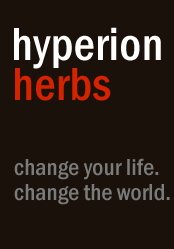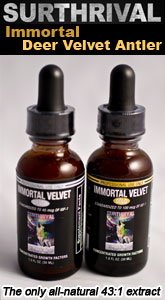|
Once you've read these gotu kola facts, you'll understand why it is known as one of the most psychic and spiritually transformative, adaptogenic herbs.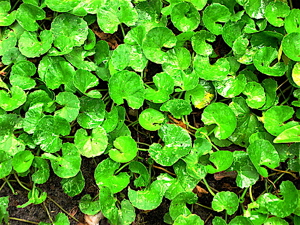
To help you remember most of these gotu kola facts, just keep in mind the shape of it's leaves. According to the law of signatures, could you perhaps intuitively guess that gotu kola benefits the brain? Much like how the ginkgo biloba leaf is shaped like and affects the brain, gotu kola benefits and is shaped like a brain as well. Many of the scientific gotu kola facts I mention in this article match up with these traditional intuitive findings. This herbal adaptogen is most often pronounced gotu kola, but some people will also say gota kola. It's latin name is centella asiatica and it is also known as Indian pennywort. Originating in India and revered by yogi's as a powerfully mystical anti-aging herb, all of the following gotu kola facts are tonic effects, meaning that it can be safely consumed for long periods of time without negative side effects. However, even with tonic herbal adaptogens, it can be helpful to rotate your usage of them by taking a few days or even one week off of them for every 2-4 weeks that you've been on them. This prevents your body from becoming "bored" with the adaptogenic herbs that you are taking and no longer getting the full benefits from them. Traditional gotu kola facts and properties:~Cooling, bitter and sweet ~Calming and supportive to the nervous system ~Increases intelligence and memory (prevents senility) ~Immune fortifying ~Increases hair and nail growth ~Strengthening to the adrenals ~Aids digestion ~Increases fertility ~Known to accelerate wound healing both internally and externally ~Shen tonic qualities (accelerates spiritual progress in those practicing esoteric disciplines by opening higher energy centres) ~Blood tonifying, circulatory and purifying qualities (often used for varicose veins) ~Skin cleansing (good for chronic skin conditions such as eczema, etc) ~Balances all three doshas (a rare quality even amongst herbal adaptogens, ginseng also does this) ~Used for opium detoxification (traditionally in Thailand) Scientific gotu kola facts and properties:Anti-inflammatory, Analgesic, Adaptogenic, Anti-carcinogenic, Anti-ulcerogenic, Mildly antibacterial, Anti-inflammatory, Anti-viral, Antiseptic, Anxiolytic (treats anxiety), Cerebral tonic, Circulatory stimulant, Emmenagogue, Febrifuge (reduces fever), Diuretic, Laxative, Nervine, Vulnerary (treats and heals wounds) 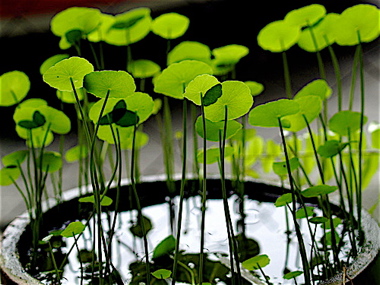
One of the most amazing gotu kola facts is that it enhances the connective tissue through stimulating glycosaminoglycan synthesis without causing excessive collagen synthesis. This is how it can rapidly heal wounds while minimizing the build up of scar tissue. Over the long term, this property will also act on the skin to help maintain a youthful appearance. In rats that have been placed in stressful living conditions, gotu kola benefits the adrenals by preventing their enlargement while also limiting excessive corticosteroid production. Yet another one of these great gotu kola facts was found in 1995 when it was found to be capable of successfully destroying cultured tumor cells in a laboratory setting (Journal of Ethnopharmacology, Volume 48, Issue 1, 11th of August 1995, pg. 53-57, article by T. D. Babu, G. Kuttan and J. Padikkala). I personally became fascinated by all of these gotu kola facts after reading some of the folklore and stories surrounding it's use.The great taoist herbalist and Jiulong Baguazhang master Li, Ching Yuen was aware of the wide array of gotu kola benefits. He purportedly lived to be 256 years old and partially attributed his extreme human longevity to consuming an organic tincture of rice wine with gotu kola, wild ginseng (probably the extremely rare, radioactive, heaven grade variety), he shou wu and licorice root on a daily basis, in small amounts. Nanddo Narian, an Indian yogi who lived to be 107, claimed that the main health benefits of gotu kola could be attributed to a unique property found within it. This unknown quality was further researched in Algeria by the French where they discovered a compound that they called "youth vitamin X", which had a particularly tonic action on the ductless glands of the body. Nanddo Narian wasn't aware of these latest scientific gotu kola facts, yet he nevertheless came to the conclusion that gota kola was the finest of all herbal adaptogens (at least out of the all natural herbs available to him at that time in India). From a Traditional Chinese Medicine perspective, consuming a gotu kola tea would be the ideal method of consumption.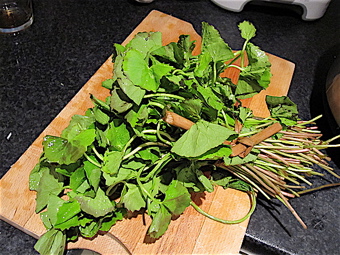
It would fall under the category of being a Shen tonic (due to it's effect on the nerves, brain and spirit) but it also has Jing tonic properties (due to it's effect on the connective tissue, blood and adrenals) as well as Chi tonic properties (due to it's effect on the digestion and immune system). The benefits of gotu kola can also be obtained through using store bought organic tinctures (certified organic since Indian herbs have a reputation for being contaminated due to low organic standards) or home made by buying it dried in bulk and extracting it. Of course, the benefits of gotu kola are going to be the most potent if you can get the herb fresh and eat it raw in a salad! Another famous Indian herbal adaptogen, brahmi, has very similar properties as gota kola and they are both often used interchangeably. However, it has recently been sorted out that these two adaptogenic herbs are two different species. You might want to experiment with both of these herbs and determine which one you like better or whether you can feel any differences at all! Another herb that was mixed up with traditional gotu kola facts was fo-ti tieng. This mistake existed for many decades in the West, most likely as a translation error, but we now clearly know the difference between these two top anti-aging herbs (another possibility as to why they became confused is that they are often combined in formula together to rejuvenate the body and mind). The proper dosage for getting the benefits of gotu kola tea is one (dry) tablespoon per cup of water (in an infusion once a day, or half that amount twice a day) or 20-60 drops four times a day from a 1:1 strength organic tincture. A great gotu kola tea is to combine it with holy basil and ashwagandha root, which are two other fantastic traditional Indian herbal adaptogens. This formula is particularly well balanced as you will equally tonify all three taoist treasures Jing, Chi and Shen (or all three Ayurvedic doshas if you prefer that perspective). Sweeten it with a bit of raw organic honey :) These gotu kola warnings and contraindications are minor but should be known before consuming:~May aggravate itching (Oh! the horror of horrors!) ~Can cause problems in pregnancy due to abortive and emmenagogue effects (stimulates blood flow to the pelvic area) ~High doses can cause headaches and even temporary loss of consciousness ~Gota kola is not related to the kola nut, therefore it does not contain caffeine! Sources: ~"Herbal Medicine" by Sharol Tilgner, N.D. (Wise Acres Press, Inc,1999) Click to return from "Gotu Kola Facts" to the "Adaptogenic Herbs" page. |






